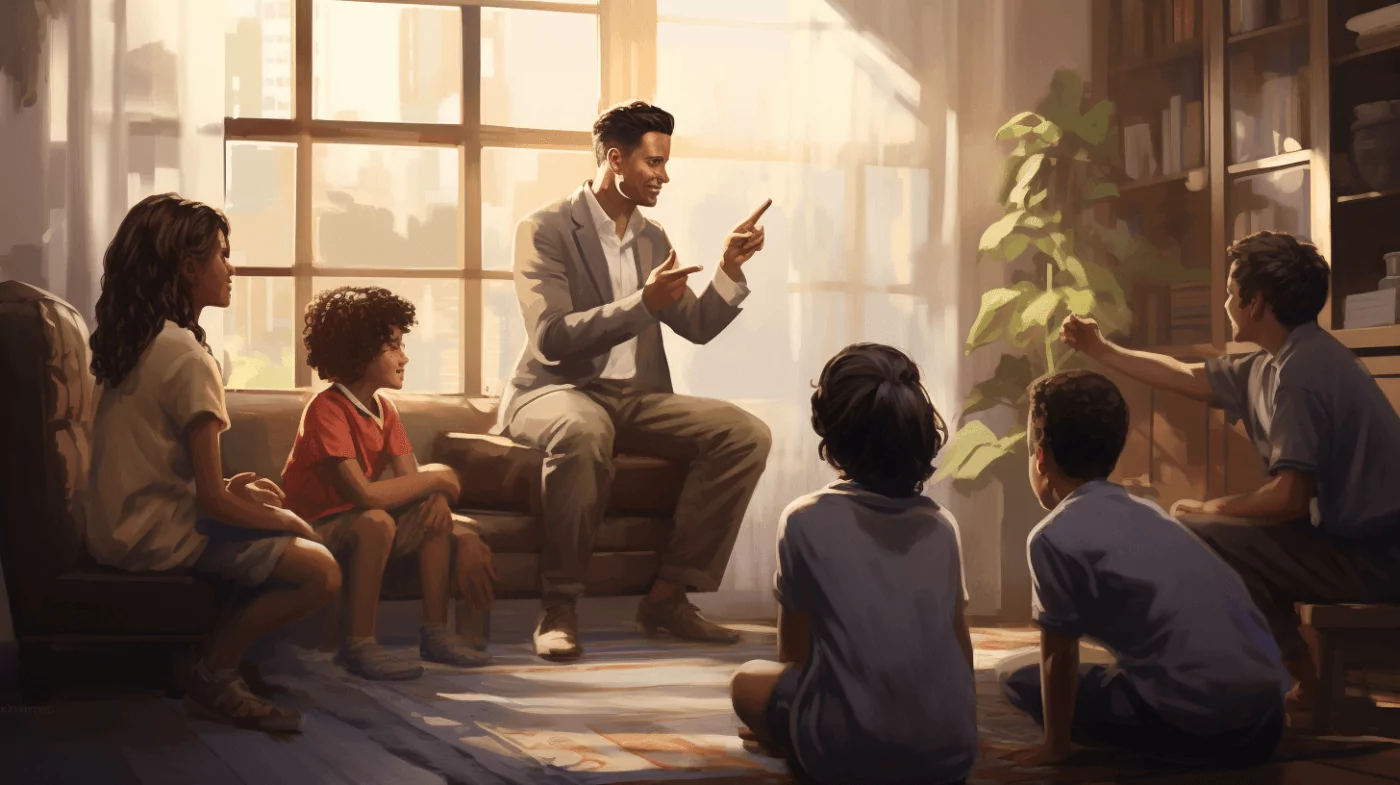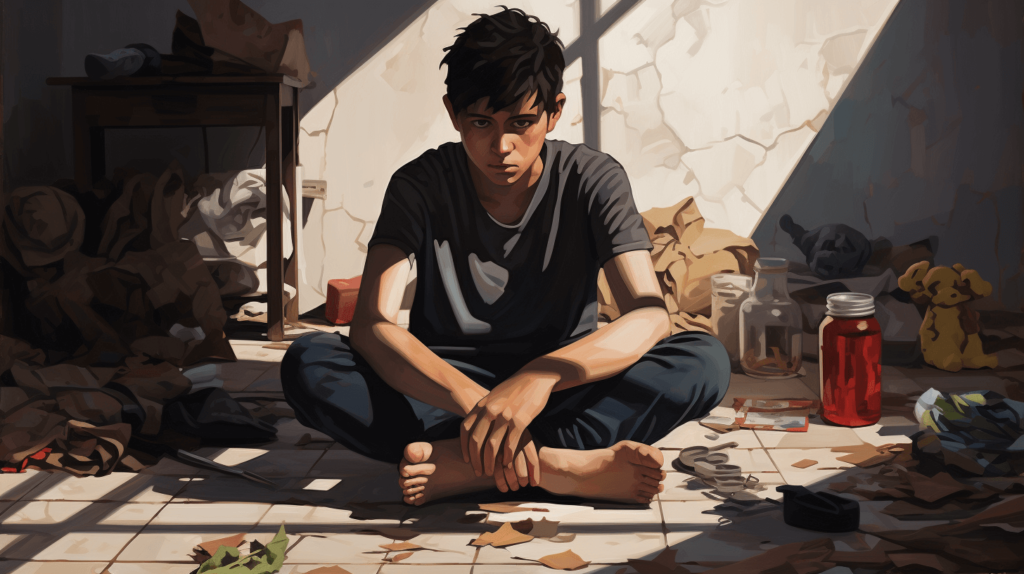Science
The Monk Who Saw the Future: Did an 11th-Century Benedictine Beat Astronomers?
17 February 2026

The belief placed by toddlers in what they are told by adults, especially their parents, could move mountains. As years go by, however, children discover that the image of the world they have been presented with often differs from reality. Children have to face new and unfamiliar rules that are observed in kindergarten and school. The greatest disappointment, however, is experienced by adolescents who notice that the ideals proclaimed by adults are often just slogans that have nothing to do with reality. The anger which then forms in a teenager’s mind is actually the result of grief that is repressed and inappropriately addressed.
Teenage years are aptly summed up as a time of ‘storm and stress,’ and this metaphor aims to reflect the emotionality of young adolescents. This is when their organisms undergo multiple biochemical processes and their appearance changes. The nervous system, particularly the brain, also undergoes intensive development.
With mental structures transforming, a child who, to date, has learnt willingly and quickly may start to become less persistent in their studies. Critical thinking and the desire to achieve independence emerge and are expressed through the negation of everything that was previously accepted as unquestionable.
Family and school are two of the most important environments that have the biggest impact on a child. Before children start to independently explore the world around them, they acquire knowledge and experience which determine their approach to the everyday. The formation of identity, i.e. the awareness of “who am I?” and “where do I come from?” is enhanced by knowing the history of one’s country, the moral system in place and the assurance of security.
The style of attachment that develops during childhood becomes more than a determinant of functioning in relationships in the future. It also reflects the way in which the young person will perceive the surrounding world. The child’s developing personality is exceptionally sensitive to any attempts to shape it by those in its closest circle.
A welcoming and safe home becomes an environment conducive to the development of a healthy personality, even if the child displays a challenging temperament. An integrated and balanced personality perceives the world as predictable and safe. This, in turn, makes it easier to achieve self-fulfillment, i.e. the essential goals that help us find happiness.
An abusive relationship between a child and its caregivers – either violent or devoid of love and attention – makes the person standing on the threshold of adulthood feel lost and alone. Despite being in pain, this young person feels unable to seek help. If, in their adult life, they fail to meet someone who helps them change their thinking patterns while providing them with security and acceptance, they might develop self-destructive behaviors.
We recommend:
One of the many myths surrounding teenagers is that they tend to negate everything and everyone, and that such a state of affairs should simply be waited out. This behavior, meanwhile, is a reaction to the multiple factors that affect adolescents. The most noticeable factor is physical change. The body usually develops faster than the mind.
Teenagers often find their new physiology quite challenging. Gaps in education, as well as not having access to an adult who can be safely approached for assistance on any topic, compound the feelings of loneliness. Parents who set limits but fail to teach how to use aspects of healthy autonomy and make wise choices, and teachers who resemble judgmental officials rather than helpful instructors, will not inspire enough confidence in a young person to become confidants or someone to turn to for help.
As a result, the peer group assumes the position of authority. Children show each other support by identifying with each other. They proceed to form groups bound by shared interests, experiences and the negation of the adult world, which frequently proves a bitter disappointment.
As adults, we are prone to declaring our opinions, which makes us look unerring and all-knowing. Meanwhile, the critical thinking abilities of adolescents are already sufficiently developed to verify whether we ourselves believe in what we say. Moreover, children are excellent observers. When we make a request of a young person, we must be prepared to be under constant scrutiny.
Such close monitoring does not result from malice or hostile intentions but the inclination to check if we are authentic in what we say. It is an attempt to verify whether or not we can be trusted. If we are sincere and authentic in what we say, and our words are followed by our actions, we will be considered as authorities worthy of trust.
An adult with a coherent personality who can be looked up to and to whom one can entrust one’s secrets and worries provides the child with a sense of security. Adolescents who know that they can turn to someone and find acceptance at any time enjoy the freedom to explore the world as one big adventure.
A typical mistake adults make is treating children as the lowest rung on the ladder. Perhaps this stems from an unconscious desire to ‘even the score’ of the younger generation to try to compensate for past humiliations received from parents and teachers. Another example of destructive behavior is leaving the children out of conversations held between adult members of the family.
Children want to be involved in the everyday life of the family unit. In such instances, our contact with the children is limited to giving instructions and their enforcement. We fail to engage in discussions with our children on the nature of the world and their perception of it. We don’t want to know if they have a different opinion to us. Meanwhile, we might discover that the young person has a lot to say and that we may actually learn a lot ourselves.
The powerful emotions experienced by adolescents are not only an expression of rebellion and a method of achieving independence. Some teenagers are unable to ask for support and attention directly, so instead, they signal that they want someone to take an interest in them. As adults, we often fail to recognize that our child simply needs support or interest, and instead, we treat them with condescension, thinking that such behavior is just an expression of rebellion, often calling it insolent and unacceptable.
As an alternative, we could address our child directly in order to establish a friendly relationship based on mutual respect and affability. If we accept that young people already have their own opinions and are attempting to make their first life choices, we will have the ability to establish a thread of understanding and trust.
Our hectic daily lives, filled to the brim with tasks and chores, prevent us from noticing that our child is maturing and slowly becoming an adult. If we are not sufficiently attentive, we will fail to realize that the young person has entered a time of ‘storm and stress’. This critical time, decisive to our child’s personality, will verify whether we will be considered trustworthy. One of the main causes of personality disorders, as well as behaviors that are rebellious and self-destructive, is that the child was previously let down by adults.
When a young person is misunderstood and not given enough attention, they often experience sadness. It is an emotion that is difficult for a young mind to handle, and when inappropriately attended to, it gradually turns into anger. The lack of support shown by an adult who can accommodate even the most difficult emotions causes the adolescent to seek an alternative outlet. In fact, what at first glance may seem like anger is not caused by malice but by anguish and the need to attract our attention. The right amount of support can overcome a young person’s initial resistance and once we have regained their trust, we can strive to improve their everyday functioning.
It is easiest to love someone who respects us unconditionally, seeks us out and keeps us close. This is the exact nature of the youngest children. Slightly older children, especially teenagers, often arouse negative emotions in us, towards which we remain ambivalent. What must be remembered is that the remedy for all symptoms of rage, anger, sorrow and grief is love. However, we will not be able to accept these feelings in our child if we do not accept them in ourselves. This adolescent who is constantly rebelling and demanding attention is also inside us. If we look after our inner teenager properly and work through our own personal problems, we will enable ourselves to love our children better, even during periods of ‘storm and stress.’
Translation: Magdalena Fowler

Science
17 February 2026



Zmień tryb na ciemny